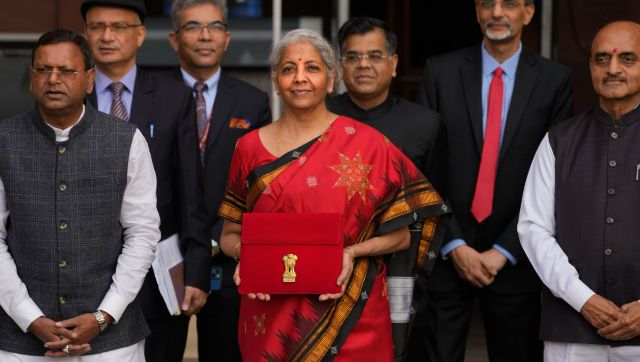The Budget is likely to be more of an economic policy exercise focusing on or enabling growth, development, asset creation, fiscal balance, etc. This is evident from the minimal changes on corporate taxes; while there are changes made on personal taxes, these are again to balance the new personal tax regime. Budget 2023 seeks to propel investments and job-creation and macro-economic stability with a staggering capital investment outlay of Rs 10 lakh crores being 3.3 percent of GDP and a near threefold increase compared to 2019-20. Interestingly, for FY 2024, we have nominal GDP growth of 10.5 percent and no specific mention of real GDP growth. Further, there is a significant reduction in subsidies, which seems to have created room for higher capital expenditure or asset creation which will go long way in job creation and sustainable growth. Recognising importance of financial sector The Budget also recognized the importance of the financial sector. Empowering IFSCA with the powers of SEZ authorities and delegating single window clearances would enable acquisition funding and allow recognition of offshore derivative contracts. On the tax side, carry-forward losses have been allowed for banking mergers as well as strategic sales by the government and PSUs which could lead to better pricing for divestments and personal tax concessions that would boost spending and expand retail credit. Extending tax holiday to startups In respect of startups, the Budget proposes to extend the tax holiday to startups by another year, i.e., 2024. Further relief in respect of eligibility to set off losses on change of shareholding has been extended to 10 years as against 7 years. Announcing tax reliefs An attempt has been made to ease complexities around the deductibility of preliminary expenditure incurred for newly incorporated companies by proposing the introduction of a statement/return. Further, credit of taxes deducted at source (‘TDS’) in the subsequent years can now be claimed even if income has been offered to tax in earlier years. This is a commendable move to address and mitigate practical hardships faced by a large number of taxpayers. The Budget proposes to restrict deductibility in respect of delays in payments to MSMEs. This is likely to promote timely payments and address MSME concerns Gift-tax provisions in respect of the issuance of shares by private companies are proposed to be extended to non-residents which earlier was limited to residents. Further, monetary benefits/perquisites received by taxpayers are proposed to be covered under the tax ambit. Keeping in mind the intricacies of the faceless assessment framework, the extension in time limits for completion of tax assessments/ reassessment from 9 months to 12 months will allow adequate time for both the taxpayer and the tax officers and address and reduce uncalled-for disallowances/ additions. It is also proposed to revisit scrutiny selection criteria for tax assessments for taxpayers. On the other hand, tax officers are proposed to be further empowered to call for valuation reports in respect of the inventory of taxpayers and detailed rules are likely to be introduced. Addressing pendency of direct tax appeals The Budget seeks to address the pendency of direct tax appeals at the first appellate level i.e., Commissioner of Income-tax Appeals by enabling new authority viz. Joint Commissioners for disposal of certain categories of appeals. This is an attempt to expedite tax litigation at the first level. There are some misses, too While the concessional 15 percent tax rate for manufacturing has been extended to cooperative societies, the benefit has not been extended to LLPs. Further, there is no extension of the sunset date for the concessional tax rate for domestic manufacturing companies, which was widely anticipated. Significant amounts are locked in tax litigation, and it was widely expected that a tax settlement or a better dispute resolution scheme will be introduced. Given the complexity of the capital gains tax regime, measures around rationalisation and/or simplifications around the same were expected. Also, the government’s point of view around OECD’s Pillar 2 provisions as well as clarifications around the applicability of Significant Economic Presence (‘SEP’) provisions were expected given the evolving global tax landscape. However, the same does not find a mention in the Budget and thus, corporates could be faced with some uncertainties as other jurisdictions roll out consultation documents and draft legislations. Given a better tax collection and an improved tax-to-GDP ratio the speech mentions revenue forgone is Rs 35,000 crores and the fiscal deficit is reduced to 5.9 percent. Having said that all in all, Budget seeks to adopt a balanced approach keeping in mind the objective of ease of doing business and compliance. It recognizes the potential of huge investments in infrastructure and employment generation and seeks to provide a roadmap for becoming a $7 trillion economy. Kanabar is Partner, EY India; Kochar is Director, EY India. Views are personal Read all the Latest News , Trending News , Cricket News , Bollywood News , India News and Entertainment News here. Follow us on Facebook, Twitter and Instagram.
There is no extension of sunset date for concessional tax rate for domestic manufacturing companies
Advertisement
End of Article


)

)
)
)
)
)
)
)
)



